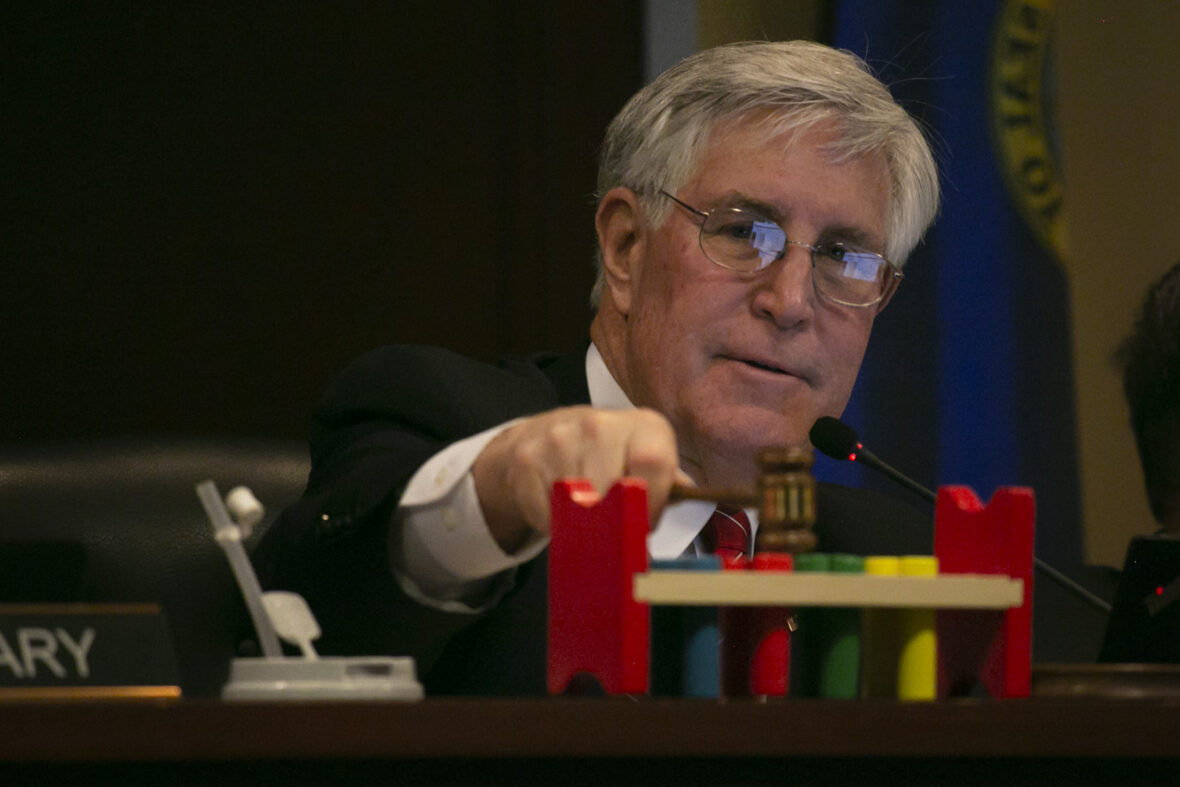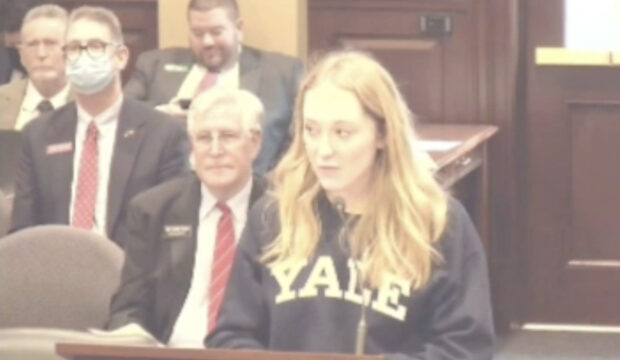After years of debate, the Legislature seems close to replacing Common Core-related standards first adopted in 2011, and science standards last renewed in 2018.
But it’s unclear how much the move will cost.
In a bipartisan vote Thursday morning, the House Education Committee endorsed new math, English language arts and science standards, two years in the making. They also voted to ditch the old standards.
The vote marks the latest development in a long struggle over content standards — a set of guideposts that determine what K-12 students should learn during their academic careers. The math and English language arts standards have been under fire for years, because of their connection to the national Common Core standards movement. Conservative lawmakers have long lamented the science standards, due to their references to climate change.
What happened Thursday
House Education approved two proposals that serve the same purpose: replacing the standards on July 1.
- The first, House Bill 716, would adopt the new standards.
- The second, House Concurrent Resolution 39, would dump the old standards.
The intricate process reflects a political tug-of-war over the standards, pitting the Legislature against the State Board of Education, the education policymaking body made up largely of gubernatorial appointees.
Academic standards fall under the State Board’s jurisdiction. They are adopted through an agency rule. But rules are subject to legislative review, and lawmakers can reject rules they oppose. That’s what HCR 39 seeks to do: It rejects the old standards that have fallen out of favor in the Statehouse.

But lawmakers also want to adopt the new standards — which state superintendent Sherri Ybarra’s State Department of Education developed, at lawmakers’ urging, with teacher and community input. And lawmakers are impatient. On Thursday, House Education Chairman Lance Clow, R-Twin Falls, said the State Board has “stalled” this process, forcing the Legislature to consider a bill to adopt the new standards.
“We are following the law, that’s why we’re here today,” he said Thursday.
Hence the two proposals.
Moving forward, there is a catch. Lawmakers need to pass HB 716, and adopt the new standards, before passing HCR 39 to dump the old standards. If the Legislature only passes HCR 39, the state could be left with no content standards, and that could jeopardize federal education funding.
What stakeholders said
As House Education held a hearing on the two proposals, several education leaders urged lawmakers to act.
“We need a path forward,” said Boise school trustee Nancy Gregory, who described the changes in the standards as “negligible.”
Idaho Education Association executive director Paul Stark endorsed the standards, noting that teachers and union members had a role in the rewrite. “We’ve had many eyes on this,” he said, “and there is a comfort level with this.”
Marilyn Whitney, a deputy superintendent with the SDE, hailed the two-year process. “It was thorough, it was deliberate, and it was completely public.”
Jonathan Oppenheimer of the Idaho Conservation League questioned both the process and the product. He said he was concerned that the State Board hasn’t formally reviewed the new standards. And while he lamented the fact that climate change has become a “flashpoint” in the science standards debate, he also said he was concerned that the standards are eroding, and may no longer reflect the scientific consensus.
What students said
Eleven high school and junior high school students testified Thursday — and were considerably more harsh in their assessment of the science standards.
The 11 students touched on several common themes. They blasted the standards’ references to “climate variation,” rather than climate change, and said a subpar education will leave students unprepared for thousands of unfilled Idaho jobs in the “STEM” disciplines of science, technology, engineering and math.

And several said their teachers have barely even discussed climate change. Halley Hoellwarth, an Eagle High School student, said her first real exposure to climate change came in an Advanced Placement environmental science class, taken by only 20 of the school’s 1,900 students. “We should be learning more about climate change, not less.”
Mya Lewis, an Eagle High School senior, said many of her classmates simply don’t take climate change seriously. “Many people are just oblivious to the problem because they are not educated on it.”
Boise Online School senior Jeff Jenks said he was left “distrustful” of the education system. “The withholding of knowledge can be compared to book burning of great literature.”
What the State Board said
On Thursday morning, State Board executive director Matt Freeman discussed the cost of the standards rewrite with House Education members.
The feds will require the state to make sure its standardized test aligns with its academic standards. Clow would like to keep the existing Idaho Standards Achievement Test on the books — and according to his bill, it will cost up to $375,000 to review the ISAT and see how it aligns with the new standards.
But that, said Freeman, doesn’t account for the cost of changing the test to fit the standards. Rep. Steve Berch, D-Boise, pressed Freeman for a cost estimate.
“I am hesitant to speculate,” Freeman said.
Cost issues were a primary concern late Thursday morning. Minutes after House Education adjourned, the State Board met to discuss the standards bills — and consider its own position.
The SDE estimates it could cost up to $45 million to update the state test, Ybarra told fellow board members, and up to $10 million in additional costs could fall to districts and charters. Still, labeling the cost concerns an “excuse,” Ybarra urged the board to endorse the standards legislation.
Her motion failed.
State Board member Linda Clark urged the board to oppose the legislation. Her motion, which came after Ybarra’s, also failed.
Ultimately, the board decided to take no position, due to the cost questions.
“I believe the board is in favor of the proposed standards,” board President Kurt Liebich said in a statement after the meeting.
What lawmakers said — and what happens next
Before endorsing the standards legislation Thursday morning, several House Education members addressed the student testimony.
“If the students are not being taught the science standards that they think we’re rejecting, that’s not our problem, because those standards have been in place, and mostly will continue,” Clow said.
Several lawmakers praised the students for speaking up — before voting to adopt the new standards.
Rep. Julie Yamamoto, R-Caldwell, sought to assure students that teachers had worked on the new standards, and the rewrite will help teachers and students alike. “We might be old but we are wise and we do listen to people in the field,” she said. “These standards will improve your education and those of your brothers and sisters to come.”
Rep. John McCrostie, D-Garden City, said he appreciated the testimony from all sides of the issue. And while he acknowledged the partisan nature of semantics — Democrats might opt for “climate change,” while Republicans might prefer “climate variation” — he said there’s a bigger issue at hand. “What matters is that (students) learn the concepts that are part of the standards.”
Berch cast the only dissenting vote Thursday.
He said he was not necessarily concerned with the standards themselves. But he has nagging questions about the cost of aligning the tests to the standards. He’s also concerned with the process — and a precedent that could allow lawmakers to delete or insert standards for political reasons.
He said he still reserves the right to support the standards when they come up for a House vote.
That vote is likely to occur next week. And if the proposals pass, they still have to go through the Senate.
Idaho Education News reporter Devin Bodkin contributed to this story.
